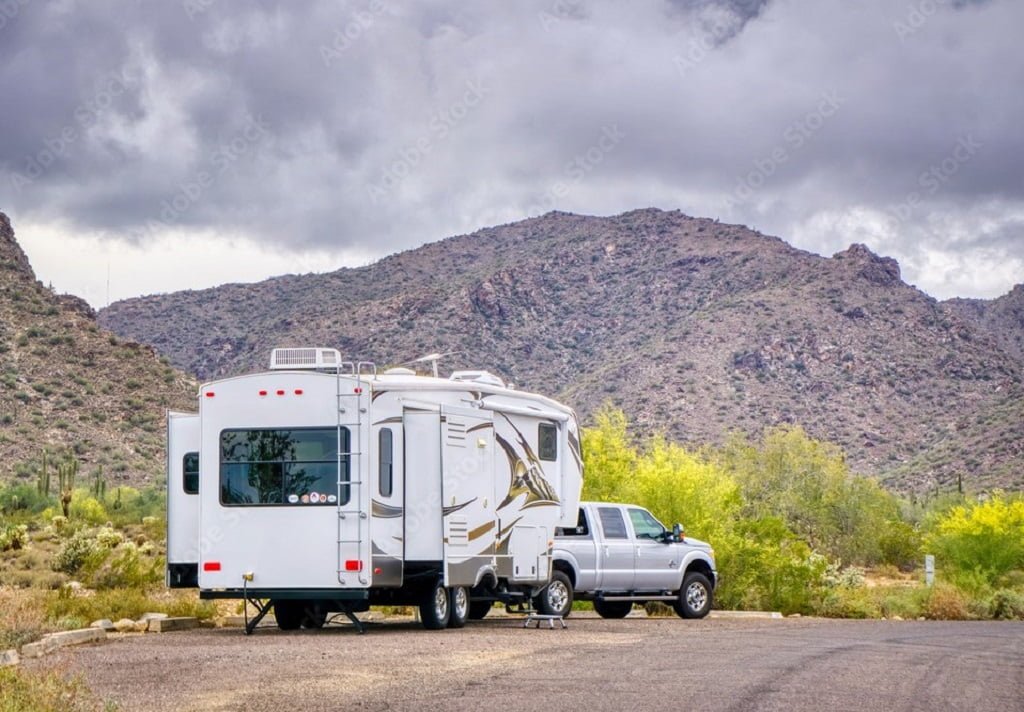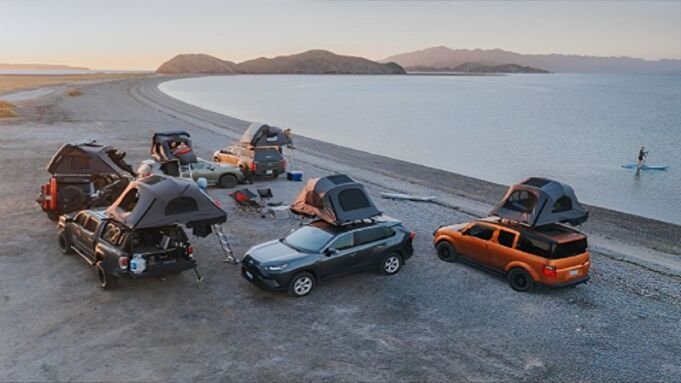While truck camping and car camping share similarities, their primary distinction lies in the type of vehicle used. Truck camping specifically involves the use of a truck, whereas car camping can be done using a variety of vehicles such as cars, SUVs, or passenger vans.
Trucks, with their enhanced off-roading capabilities and ability to handle rugged terrain, often lead to truck camping being undertaken in more secluded areas. On the other hand, car camping is usually found in more urban or less challenging environments. Regardless of the vehicle you choose, there are numerous wonderful locations to discover.
Another advantage of trucks is their external bed, which can easily be converted into a sleeping space without significant alterations to the vehicle’s interior. For those looking to maximize this space, the internet offers a wealth of inspiration and creative ideas.
Similarities in Truck Camping and Car Camping
- Basic Camping Gear:
- Both styles require fundamental camping equipment tents, sleeping bags, sleeping pads, and pillows to ensure a comfortable rest during the trip.
- Cooking Essentials:
- Cooking supplies, including portable stoves, utensils, cups, bowls, and plates, are essential for preparing and enjoying meals in both truck and car camping.
- Outdoor Furniture:
- Portable camping chairs, tables, or other seating options are common in both truck and car camping setups for relaxation around the campsite.
- Navigation Tools:
- Navigational aids like maps, GPS devices, or compasses are crucial for both styles to ensure safe and informed travels to and within the camping destination.
- Lighting Sources:
- Both camping methods require lighting sources, such as lanterns, flashlights, or headlamps, to provide illumination during nighttime activities.
- Both camping methods require lighting sources, such as lanterns, flashlights, or headlamps, to provide illumination during nighttime activities.
Differences in Truck Camping and Car Camping

- Vehicle-Specific Gear:
- Truck Camping: Involves specialized gear like bed platforms, camper shells, or rooftop tents to optimize the unique features of a truck bed.
- Car Camping: May focus on interior storage solutions, roof racks, or towing trailers to maximize available space within the vehicle.
- Off-Road Capabilities:
- Truck Camping: Trucks, with enhanced off-road capabilities, are suitable for rugged terrains, allowing access to more remote areas.
- Car Camping: Often associated with more urban or well-maintained environments, with a focus on accessibility to established campsites.
- External Storage Solutions:
- Truck Camping: Utilizes external storage options like cargo boxes or organizers in the truck bed to carry larger equipment and gear.
- Car Camping: May emphasize interior storage organization, including organizers for the trunk or back seats, to make the most of available space.
- Terrain-Specific Gear:
- Truck Camping: Requires off-road accessories like recovery gear, tire deflators, and traction aids to handle challenging terrains.
- Car Camping: May focus on terrain-specific gear suitable for well-maintained roads and campgrounds.
- Vehicle Maintenance Tools:
- Truck Camping: May carry tools specific to truck maintenance, such as tire repair kits or tools for handling off-road challenges.
- Car Camping: Requires general vehicle maintenance tools like tire pressure gauges and basic repair kits for routine maintenance.
Way to Choose The Best Truck Camping and Car Camping
Choosing between truck camping and car camping depends on various factors:
- Space and Comfort: Truck camping generally offers more space and comfort, especially with a bed canopy.
- Vehicle Capability: Trucks handle off-road conditions better, important for rugged camping sites.
- Gear Storage: Trucks have superior storage capacity for gear and supplies.
- Set-up Time: Car camping setups are typically quicker and easier.
- Fuel Efficiency: Cars are more fuel-efficient, reducing travel costs.
- Accessibility: Cars can access more locations, including low-clearance areas.
- Budget: Trucks and their camping setups can be more expensive.
- Versatility: Cars offer more versatility for non-camping use.
- Sleeping Arrangements: Trucks allow for elevated sleeping platforms.
- Weather Resistance: Truck setups often provide better protection against harsh weather.
Summary
In essence, both truck and car camping embody the spirit of adventure, though in distinct ways. Truck camping offers robustness and space, ideal for rugged terrains and extended stays, while car camping is marked by its convenience and accessibility, perfect for casual trips and easier navigation. Both forms, however, unite campers in their pursuit of simplicity, nature, and freedom.
The choice ultimately depends on personal preferences and the nature of the journey. Whether in a truck’s elevated sanctuary or a car’s cozy confines, both experiences promise the enduring joys of camping: exploration, serenity, and an intimate connection with the great outdoors.















